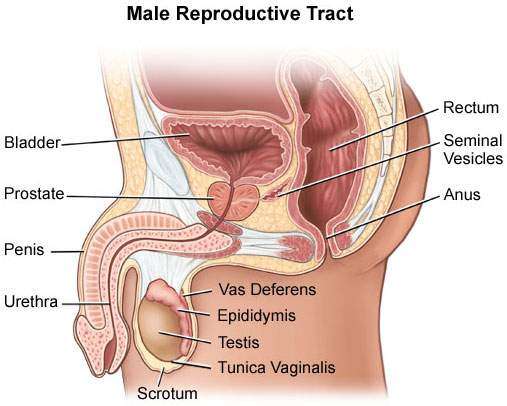Prostate cancer is a type of cancer in males which occurs in the male reproductive system. Prostrate in males produces fluid through which semen goes through. Semen is the fluid that contains sperms that fertilize the female ovum. Through fertilization, an embryo forms after which a child is later born.
If the prostate sac suffers from the risk of cancer, this means that sperm count is reduced meaning the fertility chances reduces in a person.
Causes of Prostate Cancer.
- The primary cause of prostate cancer is increased testosterone and other hormones in which the growth of cancer hormones is quickened.
- Males at the age of 50 contract the disease more than others due to them being sexually inactive for a long time.
- The disease is passed on from previous family members.
- Patients who have a diet with high fatty components have a risk of getting cancer.
- Too much alcohol is also a leading factor in prostate cancer.
- People who smoke are also high at risk of getting this type of cancer.
- Most overweight people have the risk of getting cancer due to reduced activity around them.
Signs and Symptoms

Below are the most visible warnings that show one could be suffering from prostate cancer;
- Frequent toilet visits to pass urine, especially in late evening hours.
- There is pain that comes when urinating or during when passing of semen.
- A male often finds it difficult to start the peeing process, which is the same as stopping the pee.
- Traces of blood is present in the urine when one goes to the toilet or during ejaculation some blood stains are seen.
- The pelvic bone has some pain, especially during urination.
- The pressure when passing urine decreases.
- Losing weight in some patients.
Treatment of Prostate Cancer
Treating prostate cancer is through the following ways;
- Chemotherapy sessions whereby reducing the cancer-leading cells in size happens and also their multiplication.
- Planning surgery in some severe cases.
- Carrying out therapy of the testosterone hormone to reduce overproduction.
- Practicing a healthy diet and reducing fatty foods.
- Quitting smoking.
- Reducing alcohol intake in the body.
- Practicing safe sex even at old age.
- Having regularly exercises to keep the body fit in muscle flexibility.
- Rachel Lindsay age, husband, children, divorce, Tv shows, career.
- Kyle Richards bio-age, family, husband, children, career.
- Carmelo Anthony bio, Age, wife, family, career, net worth.
- Ranjita Chakravarty Age, Husband, Children, net worth.
- Cassidy Hutchinson wiki, age, family, husband, children,
- Kylie Bearse bio-wiki, age, children, husband, net worth.
- Jeff Eliasoph bio-wiki, age, children, wife, WVTM 13, net worth.
- Kenya Institute of special education, courses.
- Mount Kenya University history, fees, courses
- Kenya Medical Training College, courses, requirements.
- Public Universities in Kenya
- Egerton university, fees, location, courses.
- List of best private primary schools in Kirinyaga County.
- List of Accredited Private Universities in Kenya